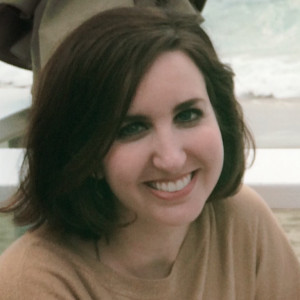- Calls to this hotline are currently being directed to Within Health, Fay or Eating Disorder Solutions
- Representatives are standing by 24/7 to help answer your questions
- All calls are confidential and HIPAA compliant
- There is no obligation or cost to call
- Eating Disorder Hope does not receive any commissions or fees dependent upon which provider you select
- Additional treatment providers are located on our directory or samhsa.gov
Vacations during the Holiday Season: Maintaining Recovery

Contributor: Courtney Howard, BA, writer for Eating Disorder Hope
The holiday season can present various triggers for anyone in recovery from an eating disorder. Time off from work or school means less structured days, more time with potentially triggering family and friends, and a general focus on food. However, there are ways to mitigate these triggers and focus on the positive parts of the holiday season to reduce the risk of relapse.
Specialists recommend that those in recovery consult with their treatment team before the holiday season kicks off. Potential issues can be addressed to ensure an individual marches into the holidays with an armor of healthy coping tools to aid recovery. Any meal and/or exercise plans in place should be followed as closely as possible during this time.
The problem lies in the fact that this is not always realistic when on holiday trips or visits with family. This is fine as long as it does not become a slippery slope of disordered eating. Those in recovery are encouraged to eat mindfully when they are unable to adhere to meal plans and always practice self-care.
Alleviate Triggers
Awareness and acceptance of stress and other triggers as they occur can strip them of their power. For example, if Uncle Bob has a history of making triggering comments, some people in recovery might try to avoid him at the family holiday party entirely. This might be a smart tactic for those who have just begun treatment.
 However, expecting him to make such comments again this year and being okay with that reality can be empowering. Once Uncle Bob does make a remark that in the past would have triggered a downward spiral, mindful awareness and acknowledgment of the situation can make it easier to move on.
However, expecting him to make such comments again this year and being okay with that reality can be empowering. Once Uncle Bob does make a remark that in the past would have triggered a downward spiral, mindful awareness and acknowledgment of the situation can make it easier to move on.
While in recovery, it can be tempting to compare food behaviors to those of others. This can be problematic since many people struggle with disordered eating habits without it constituting as an eating disorder, particularly during the holidays.
Someone in recovery comparing his or her behaviors to those of loved ones who might be exhibiting their own disordered patterns can present a distorted version of what “normal” and “healthy” mean.
Enjoy Your Family and Friends
The holidays are meant to be joyous, but vacations often come with a burden of potential triggers for those in recovery. “As a result,” Kenneth L. Weiner, M.D., founding partner and CEO of Eating Recovery Center, explains, “eating disorder treatment professionals frequently see an increase in eating-disordered thoughts and behaviors and lapses in recovery during the holiday season.”
Bringing the focus of the holidays back to family, friends, and fun can take food out of the spotlight. Enjoying holiday traditions and vacations from school or work to spend with loved ones is possible for those in recovery.
Community Discussion – Share your thoughts here!
What has been your experience with vacationing during the holidays while in recovery from disordered eating? What tools have helped you in your recovery?
 About the Author: Courtney Howard is a Certified Life Coach specializing in eating disorders through Lionheart Eating Disorder Recovery Coaching. As a content writer at The Sovereign Health Group while writing freelance through Eating Disorder Hope, Courtney is a passionate advocate for recovery and works to fight the stigma surrounding all mental health disorders. She graduated summa cum laude with a Bachelor of Arts (B.A.) from San Diego State University, holds a paralegal certificate in Family Law, and is a Certified Domestic Violence Advocate.
About the Author: Courtney Howard is a Certified Life Coach specializing in eating disorders through Lionheart Eating Disorder Recovery Coaching. As a content writer at The Sovereign Health Group while writing freelance through Eating Disorder Hope, Courtney is a passionate advocate for recovery and works to fight the stigma surrounding all mental health disorders. She graduated summa cum laude with a Bachelor of Arts (B.A.) from San Diego State University, holds a paralegal certificate in Family Law, and is a Certified Domestic Violence Advocate.
The opinions and views of our guest contributors are shared to provide a broad perspective of eating disorders. These are not necessarily the views of Eating Disorder Hope, but an effort to offer discussion of various issues by different concerned individuals.
We at Eating Disorder Hope understand that eating disorders result from a combination of environmental and genetic factors. If you or a loved one are suffering from an eating disorder, please know that there is hope for you, and seek immediate professional help.
Last Updated & Reviewed By: Jacquelyn Ekern, MS, LPC on November 16, 2015
Published on EatingDisorderHope.com

The EatingDisorderHope.com editorial team comprises experienced writers, editors, and medical reviewers specializing in eating disorders, treatment, and mental and behavioral health.

